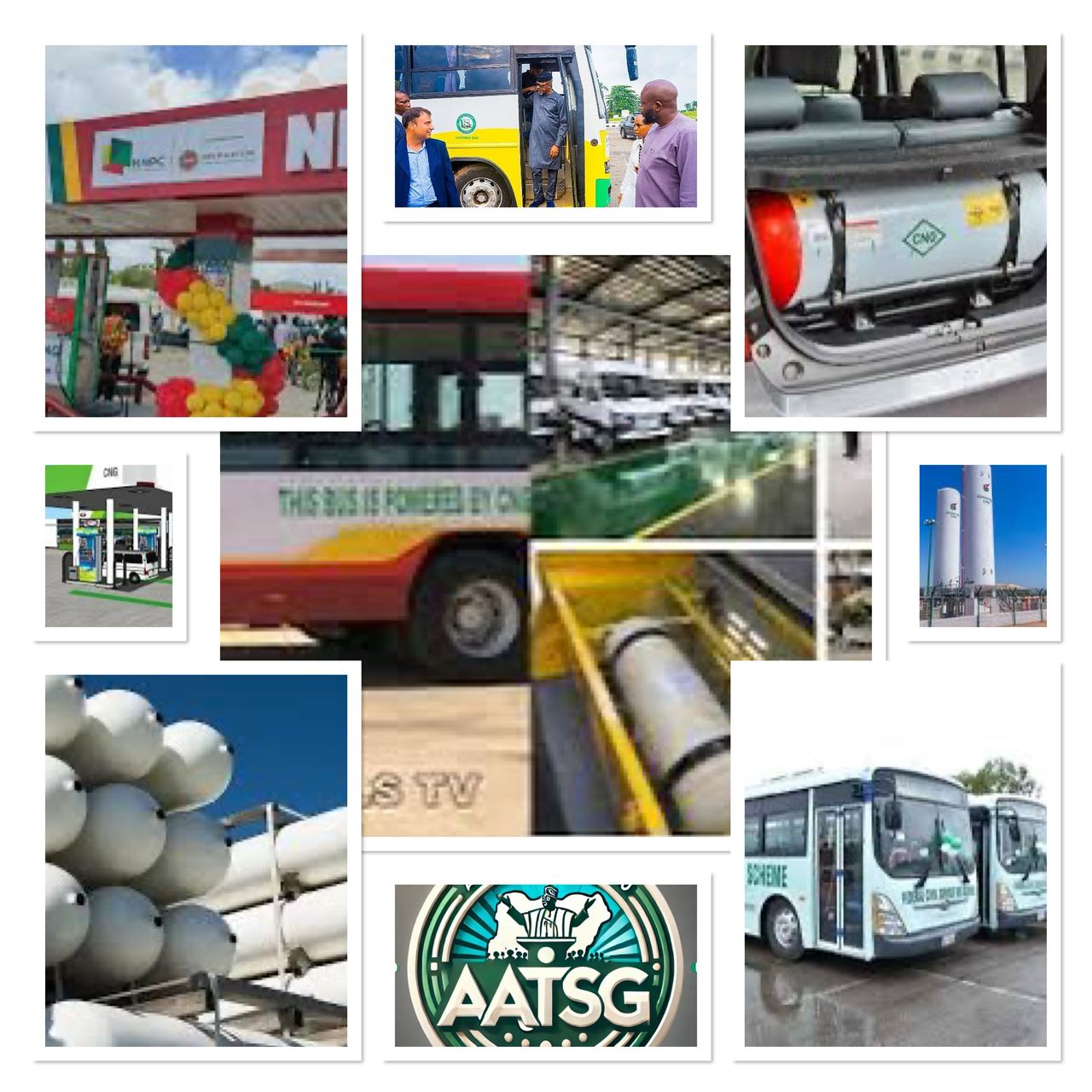The Potential Challenges and Risks of CNG Adoption in Nigeria: A Critical Examination by the National Chairman AATSG.
By Abayomi Odunowo.
The push by the Nigerian federal government to transition to Compressed Natural Gas (CNG) as a mainstream fuel alternative appears misguided, given the current market inadequacies. CNG serves as a potential cleaner substitute for traditional fossil fuels, but several foundational issues undermine its viability in Nigeria’s nascent energy landscape. The significant lack of infrastructure—including limited refueling stations and underdeveloped pipeline networks—poses an obstacle to both market adoption and consumer acceptance.
Failure to address these infrastructural shortcomings could reverberate through the economy. Without a robust network of CNG refueling stations, consumers will have limited access, leading to the phenomenon of “range anxiety” where users fear inadequate fuel availability. For industries contemplating a shift, the high costs associated with retrofitting vehicles or purchasing new CNG-compatible models can further aggravate resistance. This financial apprehension can lead to a stagnation in market growth. Moreover, if consumers perceive established fuels like petrol and diesel as more convenient and accessible, the low adoption rates of CNG may result in stranded investments for businesses that have already committed resources to developing CNG infrastructure.
Examining the trajectory of similar CNG initiatives in other countries reveals similar pitfalls. For example, in India, the government’s ambitious CNG rollout faced significant resistance due to insufficient infrastructure to support public transport systems reliant on CNG. Over time, this reluctance resulted in a faltering market and wasted investments, forcing the government to reconsider its strategy and redeploy funds more prudently. The narrative is clear: without adequate infrastructure to support the initial transition, any policy drive is doomed to fail, reflecting poorly on government planning and efficacy. Unfortunately, Nigeria is on a similar precipice, where flawed timing in the CNG initiative could lead to backtracking and disillusionment among stakeholders.
To transform this precarious situation into a viable pathway for CNG adoption, Nigeria must prioritize several immediate actions. First, it is imperative to invest significantly in CNG refueling stations across urban areas, ensuring that consumers and industries have access to necessary fuel. Second, the development of a comprehensive pipeline distribution network is essential to lower transportation costs and improve supply reliability. Third, the government must create an appealing incentive structure—tax breaks, subsidies, and grants for businesses transitioning to CNG. Moreover, equipping the workforce with the necessary skills to handle CNG technologies safely and efficiently is a pivotal step that should not be overlooked.
A well-structured, phased approach to CNG introduction should be taken into consideration. Rather than an immediate nationwide rollout, the government could identify specific urban centers with existing natural gas infrastructure as pilot regions for CNG initiatives. By focusing on localized testing, stakeholders can gather real-time data, adjust strategies as needed, and build a successful framework for broader implementation. Additionally, strategic partnerships with private sector players possessing innovative technologies in CNG solutions may enhance resource allocation and boost market confidence.
The federal government must recognize the danger of prematurely introducing CNG into an unprepared market. It is crucial to establish a stable natural gas supply, robust infrastructure, and a supportive regulatory environment before implementing large-scale CNG adoption policies. If these conditions are not met, Nigeria risks an unpredictable transition, leading to wasted investments and exacerbated economic challenges. The reflections drawn from both Nigeria’s current landscape and international examples provide a roadmap for careful navigation toward a sustainable energy future—one that prioritizes readiness and strategic foresight over hasty implementation. Immediate revisions to the current CNG introduction plan will save both the government and consumers from future pitfalls, ultimately preserving valuable resources for genuine innovations in cleaner energy solutions.
The adoption of CNG holds promise but must be approached with caution and thorough planning to avoid possible failure and unintended economic consequences. It is time for Nigeria to foster an environment that is conducive to a successful transition, one that ensures the sustained momentum toward cleaner energy without compromising consumer interests or financial viability.
Otunba Abdulfalil Abayomi Odunowo
National Chairman AATSG
Mobile: +2349053535322
AATSG Media.
URL: www.AATSG.org.ng
WhatsApp Channel: https://whatsapp.com/channel/0029VadcNX21NCrRShw4S33A
AATSG OFFICIAL
https://play.google.com/store/apps/details?id=com.slim.aatsg
AATSGiD
https://play.google.com/store/apps/details?id=com.myid.aatsgid



